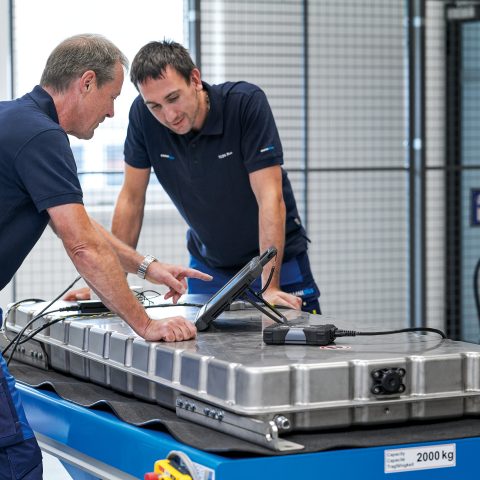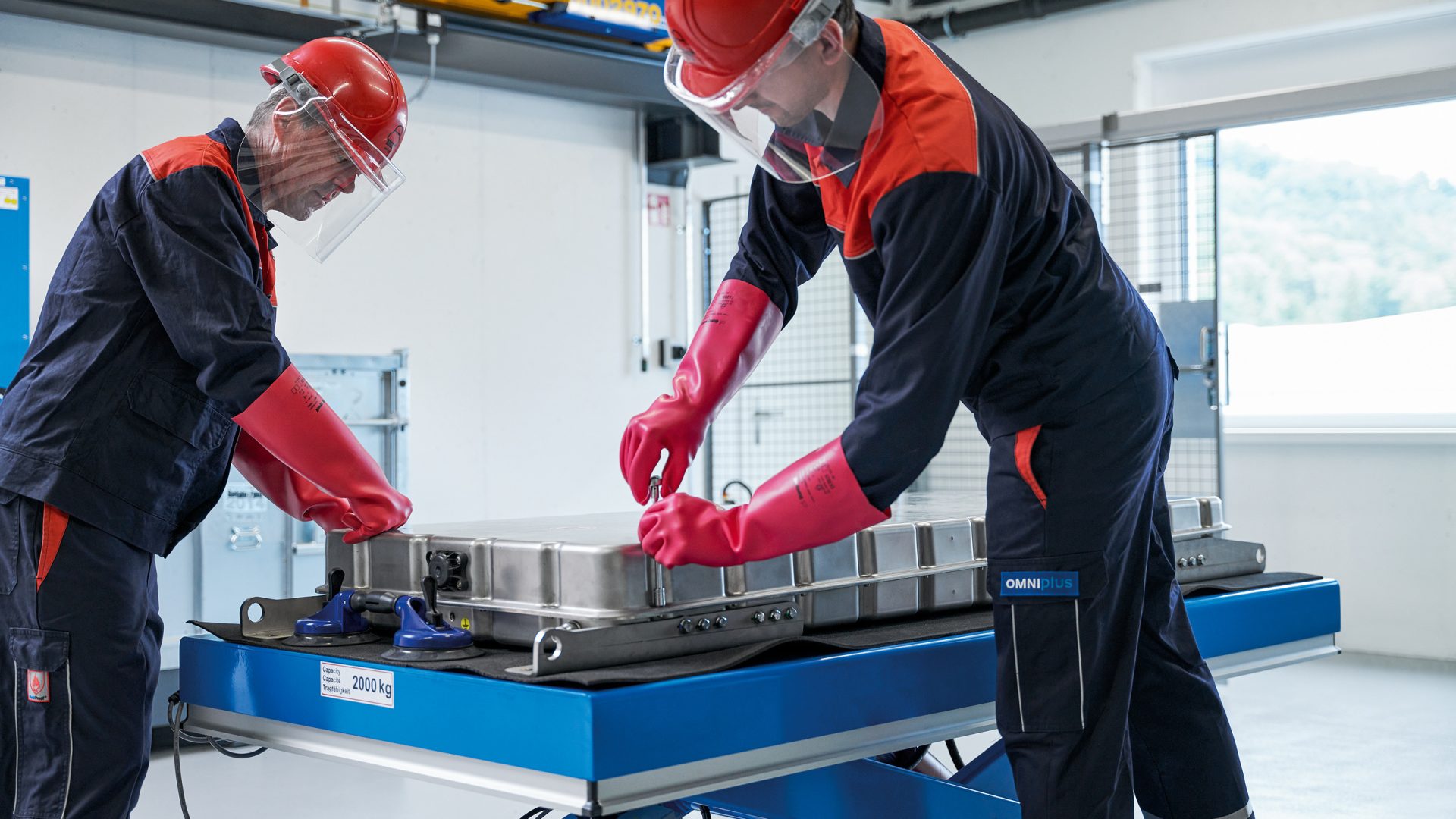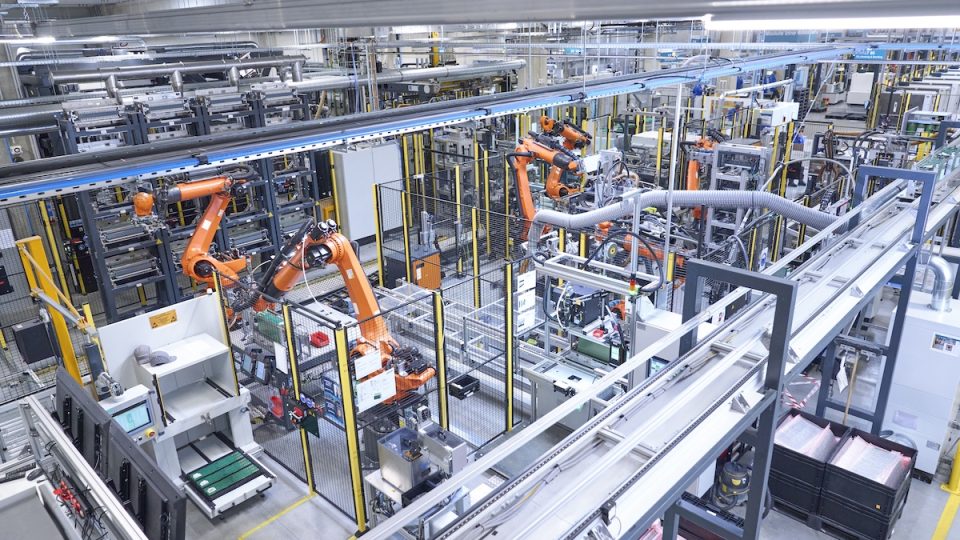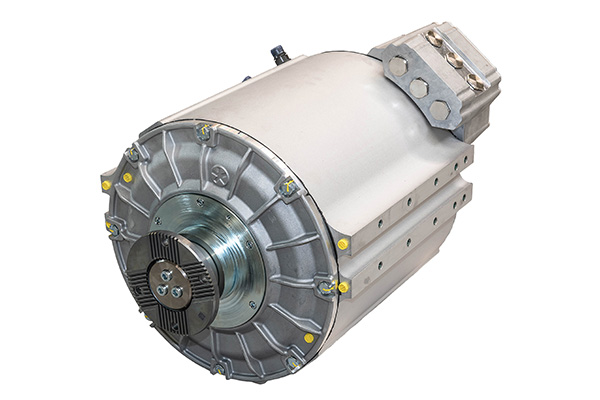Daimler Buses now offers remanufacturing of eCitaro batteries (and will switch to new modules by BMZ in 2026)
Daimler Buses announces it is now offering its customers the remanufacturing of electric bus batteries. In addition, the manufacturer is expanding its range in 2026 to include a latest-generation battery replacement with a longer range (and a new supplier). Daimler Buses was the best performing — and almost the only growing — division of Daimler […]

Daimler Buses announces it is now offering its customers the remanufacturing of electric bus batteries. In addition, the manufacturer is expanding its range in 2026 to include a latest-generation battery replacement with a longer range (and a new supplier).
Daimler Buses was the best performing — and almost the only growing — division of Daimler Truck in 2024. The division sold around 26,600 units worldwide, up two percent on the prior year’s level. In addition, Daimler Buses increased its revenue by 15 percent to over €5.2 billion – mainly thanks to positive effects from the revenue structure. In addition, Daimler Buses achieved an adjusted return on sales of 8.3 percent (prior year: 4.7 percent).
Daimler Buses plans are for only locally CO2-neutral new vehicles to be sold in the core market of Europe by 2039. In the city bus segment, this is expected to be the case in Europe as early as 2030.
Mercedes eCitaro: NMC4 is coming!
The Mercedes eCitaro has been in series production since 2018 and is now equipped with third-generation batteries (NMC3). In 2026, the significantly refined next battery generation (NMC4) is to follow, as already announced in November 2024. The new batteries are set to be manufactured by Polish BMZ. The new NMC4 batteries will be used in the Mercedes eCitaro, eCitaro G, eCitaro K and eCitaro fuel cell city buses from the beginning of 2026. The partnership between Daimler and BMZ was announced in April 2024.
So far Daimler Buses has been equipping the eCitaro family with batteries from German Akasol (then, from 2021, BorgWarner). Also LMP battery from BlueSolutions was offered as an option in the past. BMZ has been cooperating with Solaris as manufacturer of the Solaris High Energy+ batteries back in 2019. The Polish company announced in April 2021 its new generation of EV battery (REESS) dedicated for commercial applications. Named Magnus+, is presented as a scalable solution that can reach nearly 700 kWh.
The new battery generation NMC4 for the Mercedes eCitaro range – succeeding the current NMC3 technology by BorgWarner launched in early 2023 – “will combine high energy density, resulting in a longer range for e-buses, with an ultra-long cycle life”, Daimler Buses stated in a press note.
What about the Mercedes eIntouro inter-city bus? Daimler Buses presented a near-series prototype of the eIntouro at the end of 2024. The bus will be equipped with the same battery technology, known as LFP (lithium iron phosphate) batteries, as the Mercedes-Benz eActros 600 long-haul truck and will be available on the market from 2026. Provider of the cells is Chinese leader CATL.

Daimler Buses offers remanufacturing of batteries
Daimler Buses has just announced that it is now “remanufacturing first-generation NMC1 batteries as required, which significantly increases the capacity and therefore also the electric range of the buses. In the future, what is known as the “reworked” range will also be extended to NMC2 and NMC3 batteries. In addition, Daimler Buses will also replace batteries of all predecessor generations (NMC1 to NMC3) from 2026 onwards, depending on the customer’s planned duration of use. The company will then replace them with the latest NMC4 models, which enable an increase in capacity and thus also greater ranges of existing e-buses compared to when they were new”.
Daimler Buses will also apply remanufacturing and battery replacement to the new NMC4 generation for its used vehicle range in the “BusStore”. Customers can also purchase used e-buses with very high battery capacity or the latest battery technology.
IT technology around batteries
Before remanufacturing or replacement becomes necessary, the Daimler Buses digital service portfolio helps to extend the battery service life in the vehicle. For example, software checks the status of the batteries in the electric bus fleet and compiles this information for the bus operator, including recommendations for action. Among other things, it detects the state of charge, temperatures and non-operational times of the buses and recommends measures to protect the batteries.
As part of new vehicle sales, Daimler Buses announces it will also offer warranties of up to twelve years with the introduction of the new NMC4 battery in 2026. This allows customers to use their vehicles economically and without risk over a long period of time. In addition, the manufacturer relies on a modular design of its batteries, which enables simple repairs.
Daimler Buses e-service network with extensive services
With over 100 locations, Daimler Buses has established what the company claims being one of the largest e-service networks for buses in Europe. The service employees are specially trained in the proper handling of electric vehicles and their high-voltage technology. The locations have special facilities such as elevated racks or battery cranes for working directly on the high-voltage components or repairing or replacing complete batteries.
What about second life of batteries?
After the first life of the batteries in the vehicle, Daimler Buses offers solutions for what are known as “repurpose” applications. Here, the former high-voltage batteries are used, for example, in energy storage units to compensate for peak loads in the power grid or as intermediate storage units in solar and wind farms. Subsequently, at the end of the life cycle, the company states it joins up with partners to offer recycling opportunities to recover bound raw materials as far as possible. With the objective of enabling even more efficient recycling methods and a closed product life cycle, Daimler Buses has partnered with Daimler Truck to participate in funded projects across Germany.
Till Oberwörder, CEO of Daimler Buses, states: “The future of buses is clearly electric. In addition to the high demand for our electrified buses and our range of services for developing turnkey e-infrastructure, we see great potential in the field of e services – and we want to exploit this potential. Our customers should be able to use electric buses as economically and for as long as conventionally powered vehicles. This makes us pioneers in the industry. Our first-generation Mercedes-Benz eCitaro buses are still in successful use today. The new e-services will help to ensure that this remains the case for many years to come. This sends a clear message: E-buses are here to stay!”






